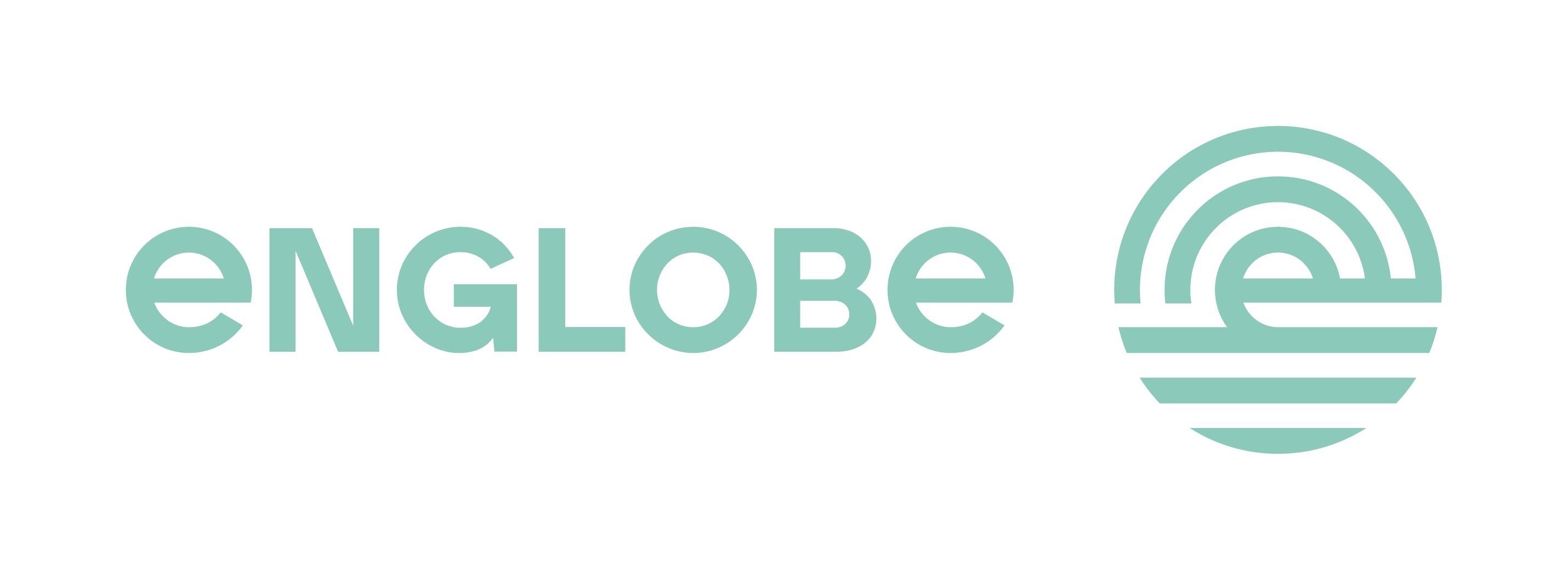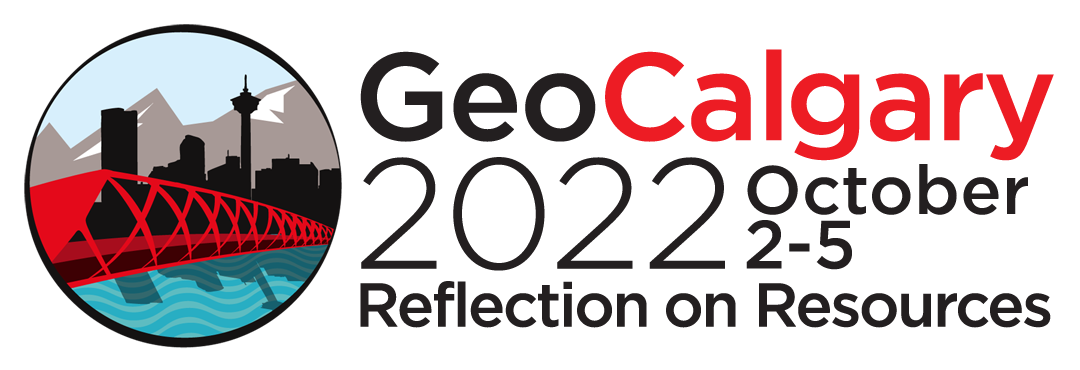Sponsors Diamant




Sponsors Platine








Cours de courte durée
GeoCalgary 2022 is pleased to offer the following short courses on Sunday, October 2 in addition to the official conference program:
- SC1: Basics of Design of Piled Foundations
- SC2: Pipeline Geotechnique
- SC3: Terrain Analysis Workshop
- SC4: Design and Construction of Mechanically Stabilized Earth Retaining Structures and Associated Ground Improvements
- SC5: Rock Engineering in Mountainous Terrain
Short Courses will be given in English only.
GeoCalgary 2022 reserves the right to cancel a short course should the minimum number of registrants not be reached. In the event of a cancellation, registrants will be notified by email and offered a transfer to another course or a full refund.
Short courses fees are in Canadian Dollars and are subject to GST tax of 5%.
SC 1: Basics of Design of Piled Foundations
Instructor: Dr. Bengt H. Fellenius
Date: Sunday, October 2, 2022
Time: 8:00 am – 12:00 pm
Cost: Full $400 (Early Bird Registration) / $450 (Late Registration)
Student $200 (Early Bird Registration) / $225 (Late Registration)
The course comprises four parts presenting the essentials of the Unified Method of deep foundations design for capacity, drag force, settlement, and downdrag for single piles, pile groups, and piled foundations, which emphasizes analysis and design for settlement. The presentations are illustrated with case histories of testing and design analysis. Conventional head-down and bidirectional static loading test methods are detailed, including how to evaluate strain-gage measurements from instrumented pile loading tests and how to assess residual load. Settlement analysis is of vital importance to the design of piled foundations, and the course addresses principles of settlement analysis and how to calculate settlement of piles and piled foundations—single piles as well as pile groups. Pertinent aspects of construction procedures, Load and Resistance Factor Design (LRFD), and Reliability Base Design (RBD) are briefly addressed.
Covered topics will be:
- Analysis of Load Transfer, Capacity, and Response to Load
- The Static Loading Test: Performance, Analysis, and Instrumentation
- Piles and Pile Groups – Long-Term Behavior and how we know what we know
- The Unified Design Method
About the Instructor:
Dr. Bengt H. Fellenius
Dr. Fellenius, Professor of Civil Engineering at the University of Ottawa from 1979 through 2002, is an internationally recognized authority in the field of soil mechanics and foundation engineering, and, in particular, in deep foundations. He has gained a wealth of practical experience during 60 years of work at home and overseas through a variety of assignments that encompass foundation, embankment, and soil improvement design for water and sewage treatment plants, industrial plants, as well as bridges, highway, and airport projects, and marine structures and urban area development projects; some of which he has written up in about 400 technical journal and conference papers, articles, books, and book chapters. Copies of many of the papers are available for downloading from Dr. Fellenius’ websit
Instructor: Doug Dewar, M.Sc., P.Eng.
Date: Sunday, October 2, 2022
Time: 8:00 am – 5:00 pm
Cost: Full $400 (Early Bird Registration) / $450 (Late Registration)
Student $200 (Early Bird Registration) / $225 (Late Registration)
The course is designed to educate engineers and geoscientists conducting site-specific landslide and/or settlement subsidence assessments for pipeline industry operators. Basic pipeline fundamentals essential to these assessments will be introduced. Advice on the best use of traditional ground monitoring techniques such as slope inclinometers, surface survey and LiDAR will also be presented. The focus of the course will be to introduce pipeline monitoring techniques that provide direct indications of potential soil to pipe interactions. Pipeline monitoring techniques to be discussed will include pipeline locates, pipe wall assessments (aka. electromagnetic tomography) and in-line inspections. The focus will be the integration of traditional ground/pipeline monitoring techniques with other sources of information including operator records and potential interacting pipeline anomalies. Additional topics covered include pipeline emergencies, steep slope operations, pipeline rules of thumb and strain relief.
A paper copy of the course presentations will be provided to participants to take notes on. A memory stick including the course presentation and references/resources that are legal to provide.
Pipeline Geotechnique Short Course | |
Time | Tentative Outline |
8:30 to 8:45 | Introductions Meet your Teacher (or Punisher) and Participants |
8:45 to 9:00 | Course Introduction and Goals Stories from Dewar to set the stage |
9:00 to 9:30 | Pipeline 101 for Geotechs (Possible Guest Speaker)
|
9:30 to 9:45 | Current State of Practice
|
9:45 to 10:15 | Geotechnical Geohazard overview
|
10:15 to 10:30 | Break |
10:30 to 11:15 | Ground Monitoring Technologies for pipeline applications. It is understood that attendees will have a basic understanding of these technologies:
|
11:15 to 11:30ish | Pipe Monitoring Techniques 1
|
11:30ish to 12:00 | Pipe Monitoring Techniques 2
|
12:00 to 13:00 | Lunch |
13:00 to 14:30 | Pipe Monitoring Techniques 2 (cont’d)
|
14:30 to 14:40 | Break |
14:40 to 15:10 | Pipeline Construction and Maintenance Activities They did what? |
15:10 to 15:40 | Mitigations options and design advice |
15:40 to 15:50 | Mini Break |
15:50 to 16:15 | Pipeline Geotechnique Potpourri
|
16:15 to 16:30 | Putting the Picture Together with all other sources of information/techniques |
16:30 to 17:00 | Panel/Group Discussion |
17:00 onwards | CGS Opening Social |
About the Instructor:
Doug Dewar, M.Sc., P.Eng.
Doug Dewar graduated from the University of New Brunswick with a Bachelor of Science in Geological engineering and the University of Alberta with a Master’s of Science in Geotechnical Engineering. Doug worked in consulting for 6 years prior focusing on landslides and train stability for the forest, mining and pipeline industries prior working for pipeline operators for the last 18 years. He is currently a geotechnical supervisor at Pembina Pipelines working with a team of internal professionals and consultants to implement a geohazard management program for approximately 19,000 km of pipelines in Alberta, Saskatchewan and British Columbia.
Doug has published numerous papers and been involved in several industry groups focusing on the incorporation of ground and pipeline monitoring techniques into geohazard management programs. Specifics interest include the use of axial strain and geometry in-line inspection methods to detect and assess interacting landslides.
SC 3: Terrain Analysis Workshop
Instructors: Lynden Penner, M.Sc., P.Eng., P.Geo.
Dr. Jason Cosford, P.Geo.
Date: Sunday, October 2, 2022
Time: 8:00 am – 5:00 pm
Cost: Full $400 (Early Bird Registration) / $450 (Late Registration)
Student $200 (Early Bird Registration) / $225 (Late Registration)
Effective terrain analysis for geotechnical investigations is built on landform recognition and an understanding of the physical properties and geotechnical characteristics of earth materials within those landforms. Knowledge of physical processes that created the landforms and ongoing processes that modify the landscape, coupled with knowledge of the underlying geological and hydrogeological conditions, allows the terrain analyst to infer the sediment composition within the landforms and their physical properties, geotechnical characteristics and condition.
Interpretation of 3-D aerial and satellite images is an essential skill for terrain analysts to describe and characterize the terrain for a wide range of geotechnical applications. This hands-on, interactive one-day course focuses on the use of air photos and satellite images, high resolution digital elevation models (DEMs) and other remote sensing tools for 3-D terrain analysis, including data integration and analysis using geographic information systems (GIS). Emphasis is given to identification and interpretation of Canada’s landforms, landscapes, surface and subsurface materials along with their characteristics, properties, suitability and behaviour for specific uses and applications. Participants will interpret a selection of 2-D and 3-D air photos appearing in an introductory DOWN TO EARTH textbook, a stereoscopic air photo manual containing 680 images of diverse terrains from across Canada, and high-resolution 3-D DEM imagery. A main course objective will be to describe identifying characteristics of a wide variety of Canadian landscapes, their recognition features and associated geoscience, engineering and environmental significance/behaviour/applications. Instructors will make extensive use of practical case history examples to illustrate remote sensing techniques and objectives along with multidisciplinary data integration, including the use of GIS technology.
About the Instructors:
Dr. Jason Cosford, P.Geo.
Jason Cosford has worked at J.D. Mollard and Associates (2010) Limited as a geoscientist since 2001, specializing in the application of terrain analysis to the study of geomorphology, hydrogeology, geohazards, and the effects of climate change. Jason also specializes in isotope geochemistry with particular emphasis on paleoclimatology and geochronology. He is an experienced interpreter of air photos and satellite imagery and a proficient user of Geographical Information Systems (GIS). An experienced field researcher, Jason has conducted field mapping in diverse terrains, ranging from recent glacial landforms and sediments in southern Patagonia to Proterozoic rocks of the Trans-Hudson Orogen in northern Saskatchewan, and has collected field data using variety of techniques including ground conductivity surveys, ground penetrating radar, bore holes, piezometers, and lacustrine coring. Recent projects include hydrogeological mapping for the IEA Weyburn CO2 sequestration project, extracting and interpreting sediment cores from hydro reservoirs in northern Manitoba, mapping and modeling erosion of the banks of the Peace River in British Columbia from digital orthoimagery and LiDAR data, and interpreting stable isotopic records of speleothem as a proxy for paleoclimatic conditions associated with fluctuations in the intensity and character of the East Asian monsoon.
Lynden Penner, M.Sc., P.Eng., P.Geo.
Lynden Penner is the president of J.D. Mollard and Associates (2010) Limited, has specialized in air photo and satellite remote sensing since 1986, and is a sessional lecturer in terrain analysis for the Faculty of Environmental Engineering, University of Regina. Lynden has carried out a wide range of consulting projects for engineering, environmental, geological, and resource exploration and development applications. These study projects include applied terrain mapping and evaluation, linear route location and evaluation, construction material mapping and field testing, electrical conductivity surveys, soil gas geochemical sampling and interpretation, mining and petroleum exploration and development studies, evaluation of terrain sensitivity and shore erosion modelling. His published works appear in technical and scientific papers and journals.
SC 4: Design and Construction of Mechanically Stabilized Earth Retaining Structures and Associated Ground Improvements
Instructors: Bill Brockbank, Shahriar Mirmirani, Bill Demers, Behnam Fonouni, David Craig and Benoit Kroely
Date: Sunday, October 2, 2022
Time: 8:00 am – 4:00 pm
Cost: Full $400 (Early Bird Registration) / $450 (Late Registration)
Student $200 (Early Bird Registration) / $225 (Late Registration)
As the use of MSE walls is becoming increasingly more popular it is important for those involved to have a good understanding of both design and construction.
This short course will provide the basic information needed to understand the important technical aspects and the responsibilities of various team members on an MSE project.
The short course will be delivered by a team of six presenters from the industry including:
- MSE Design Supply Company, Reinforced Earth Company Ltd.
- Foundation Improvement Company, Menard
- Soil Investigation Company, ConeTec Investigations Ltd.
- Monitoring of MSE Walls, Sixense
9am – 12pm: Design and Construction of MSE Walls
Basic Design
- Internal Design, External Design, Global design, Composite design
- Choice of materials
- Design for durability
- Fundamentals of interior design, tension, friction, failure wedge
Design Documents and Use
- Canadian Highway Design Manual, CSA-S6-19, (new MSE Section)
- Foundation Engineering Manual
- TAC Guideline
Options on Poor Foundation
- Foundation Improvement
- Light-weight fill
- Inherent ability of MSE to tolerate differential settlements
Construction
- Basic technique
- Challenges
- Role of inspection and by who
- Winter construction
Inspection, Repair, Maintenance
- Inspection of structures, what to look for
- Use of durability corrosion monitoring test samples
- Fire
- Washouts
Responsibilities of all on the team:
- Roles of Owner, Civil Consultant, Geotechnical Consultant, MSE design/supplier for various project delivery methods
| 1pm-4pm: | Ground Improvements |
| 1pm-2pm: | Foundation Improvement Options for MSE Walls |
| 2pm-3pm: | Soil Investigation for MSE Walls |
| 3pm-4pm: | Monitoring of MSE Walls |
| 4pm: | Concluding Remarks |
About the Instructors:
Bill Brockbank, P.Eng.
Bill has spent the past 38 years with the Reinforced Earth Company Ltd., (RECo) including Engineer of Record on several thousand structures constructed in Canada. Bill is author/co-author of approximately 30 published conference technical papers. His committee involvements include; 1)Task Group of Subcommittee, Section 6, MSE Walls, Canadian Highway Bridge Design Code; 2)Steering Committee, “Design, Construction, Maintenance and Inspection Guide for Mechanically Stabilized Earth Walls, Transportation Association of Canada, (TAC)”, 3)Coauthor for Canadian Foundation Engineering Manual, Section on Reinforced Soil Walls; 4)Structures Standing Committee, Transportation Association of Canada, (TAC); 5)Section 7, Buried Structures, CSA-S6, Canadian Highway Bridge Design Code.
Shahriar Mirmirani, M.Sc., P. Eng.
Shahriar has over 20 years of experience in infrastructure projects and possesses a master’s degree in Geotechnical Engineering. He joined Reinforced earth Company in 2010 and has been involved in designing many MSE walls and buried concrete arch systems across the country as the Engineer of Record. He is currently the Vice President – Engineering Manager of the company in Canada. Shahriar has authored and co-authored over 10 published technical papers. He is currently the secretary of TC218-Reinforced Fill Structures of ISSMGE and a member of TAC structures committee.
Bill Demers, Manager, Western Canada, Reinforced Earth Company Ltd.
Bill has been working with Reinforced Earth Company Ltd. for 15 years and is the Regional Manager for Western Canada, working out of the Calgary Branch. Bill has over 25 years experience with Mechanically Stabilized Earth structures – from design through to construction.
Behnam Fonouni, PhD, P.Eng.
Behnam is the Branch Manager of Menard Canada and is based in Calgary. He has been working as a geotechnical consultant for over 20 years before joining Menard Canada, a nationally renowned Ground Improvement company that provides design-build solutions for a wide range of soils and construction activities, including alternative solutions to piling.
David Craig P.Eng, M.B.A.
David is Regional Manager – ConeTec: David has over 13 years of experience completing full-scale geotechnical site investigations. These investigations included the use of CPT, SCPT, Gamma-CPT, Full-Flow Penetration Testing, Electric VST, SPT Energy Calibrations, Sonic Drilling, Mud Rotary Drilling, Air Rotary Drilling and Auger Drilling. David graduated from the school of Applied Science at Queen’s University in Kingston, Ontario and completed his Master of Business Administration (M.B.A.) from the University of Western Ontario’s Ivey Business School.
Benoit Kroely,PMP, CSM
Benoit is the Digital and Program manager for the implementation of asset inspection and management systems at Sixense. Working directly with clients, Benoit has successfully completed the delivery of twenty asset management and inspection projects for public or private entities. He has overseen most of the design, coding, testing and documentation for recent developments and customizations. Benoit has published several papers on asset management systems developed for the ASCE, IBC, TRB and the IABMAS conferences. M.Kroely holds two MSc, in Project Management and Information systems, and a BSc, Computer science.
SC 5: Rock Engineering in Mountainous Terrain
Instructor: Emily Rowe, M.Sc., EIT, Marc-André Brideau, Ph.D., P.Geo., géo., Matthieu Sturzenegger, Ph.D., P.Geo., Matthew Cleary, B.Sc., P.Geo.
Date: Sunday, October 2, 2022
Time: 8:00 am – 5:00 pm
Cost: Full $400 (Early Bird Registration) / $450 (Late Registration)
Student $200 (Early Bird Registration) / $225 (Late Registration)
This short course will focus on geotechnical and hydrogeological investigations, assessments, and monitoring for rock engineering projects in mountainous terrain. The instructors will share learnings from their significant experience with site investigation programs (drilling, installations, photogrammetry, geophysics, remote sensing, and data management), including how to maximize the value of your programs. Attendees will learn about rock mass characterization and hydrogeological characterization, and how to integrate them into a site-wide conceptual model. The stability analyses segment of the course will include kinematic and overall stability assessment for cut slopes and natural slopes including rock landslides, and will demonstrate how to use the results of groundwater modelling to support stability analyses. Conceptual mitigation options and geotechnical and hydrogeological monitoring for operations will also be discussed. The content will be supported as much as possible with real-world examples from mining and transportation projects in North and South America.
About the Instructors:
Emily Rowe, M.Sc., EIT
Ms. Rowe has extensive experience in geotechnical engineering design for tailings facility and open pit mine projects. Her work experience includes site investigation data collection and reporting, the review and interpretation of geotechnical monitoring data, seepage and slope stability assessments completed using numerical modelling tools, and change detection analyses using remote sensing data.
Marc-André Brideau, Ph.D., P.Geo., géo.
Dr. Brideau has a breadth of experience in applying the principles of engineering geology, rock mechanics, geomorphology, and remote sensing to geohazard projects in Canada and New Zealand. His expertise includes rock slope hazard assessment, geohazard risk assessment, terrain mapping, slope stability modelling, landslide runout modelling, and aerial photograph interpretation.
Matthieu Sturzenegger, Ph.D., P.Geo.
Dr. Sturzenegger has combined academic and industry experience in engineering geology, rock mechanics, geohazard assessments, geomorphological mapping, and advanced remote sensing for railways, hydroelectric dams, open pit mines, municipalities and highways. The topic of his Ph.D. research was on the application of terrestrial remote sensing techniques (laser scanning and digital photogrammetry) for rock slope characterization.
Matthew Cleary, B.Sc., P.Geo.
Mr. Cleary has extensive experience in physical hydrogeology, including mine-water assessments, water supply assessments, environmental assessments, dam assessments, and waste water disposal. He has managed numerous large open pit hydrogeology studies involving large field components and complex numerical groundwater modelling aspects, for all phases of mine life from baseline and operations through to mine closure.
